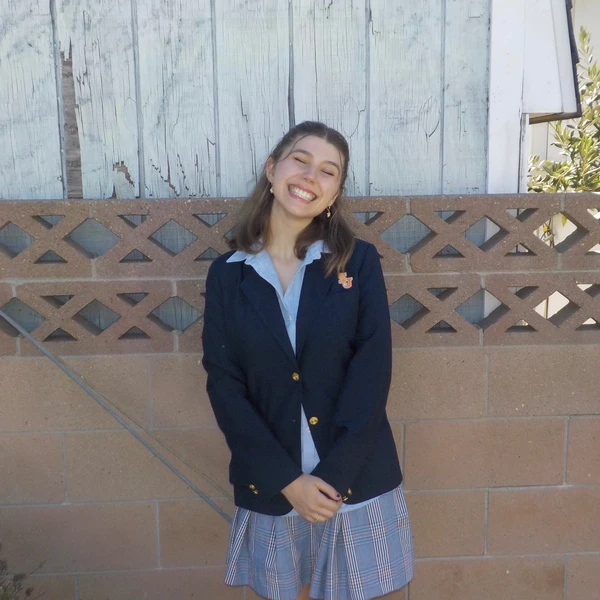
Hobbies and interests
Acting And Theater
Art
Botany
Coffee
Conservation
Gardening
Hiking And Backpacking
Reading
Academic
Action
Adventure
Classics
Contemporary
Drama
Environment
Gothic
Horror
Humor
Folklore
Literary Fiction
Literature
History
Realistic Fiction
Science Fiction
Women's Fiction
Magical Realism
Politics
Plays
Philosophy
Social Issues
Fantasy
Historical
Novels
Mystery
I read books multiple times per week
Kaylee Freesmeier
1,345
Bold Points2x
Nominee1x
Finalist1x
Winner
Kaylee Freesmeier
1,345
Bold Points2x
Nominee1x
Finalist1x
WinnerBio
Kaylee Freesmeier is a senior at Saint Joseph High School in Lakewood California. She is incredibly passionate about the environment and is seeking to double major in Environmental Science/Studies and Molecular Biology. With these degrees, she intends to do work to benefit the environment and to aid the stop of Climate Change as a whole. She has leadership positions in the ASL Honor Society (President), National English Honor Society (Vice President), and Drama Club (Vice President), with membership in the National Honor Society, Science National Honor Society, and California Scholarship Federation. Aside from her academic pursuits, Kaylee is an avid actor, hiker, and creative writer who can usually be found in her garden with a new book and a warm blanket.
Education
Saint Joseph High School
High SchoolMiscellaneous
Desired degree level:
Bachelor's degree program
Majors of interest:
- Environmental/Natural Resources Management and Policy
- Microbiological Sciences and Immunology
- Biochemistry, Biophysics and Molecular Biology
Career
Dream career field:
Environmental Services
Dream career goals:
Aiding in Climate Change Relief and Environmental Rebuilding
Tutor
Door Of Hope Foundation2024 – 20251 year
Sports
Volleyball
Junior Varsity2017 – 20181 year
Arts
Saint John Bosco High School
ActingJersey Boys2025 – 2025Saint John Bosco High School
ActingKodachrome2024 – 2024Saint Joseph High School
ActingBeauty and the Beast2024 – 2024Saint John Bosco High School
ActingAttack! Of the Killer Man From the Sun2024 – 2024Saint John Bosco High School
ActingThe Wedding Singer2023 – 2023Saint Joseph High School
ActingFrankenstein2023 – 2023Saint Joseph High School
ActingMuch Ado About Nothing2023 – 2023Saint Joseph High School
ActingOklahoma!2022 – 2022
Public services
Volunteering
Lakeview Elementary School — Teacher’s Aid2025 – PresentVolunteering
Door Of Hope - Norwalk CA — Tutor2024 – 2025Volunteering
Saint Pius X School — Teacher’s Aid2022 – 2024